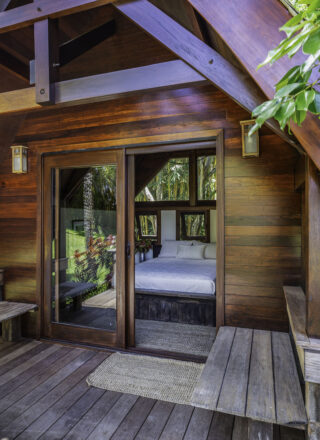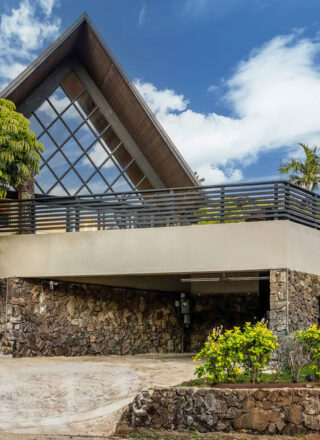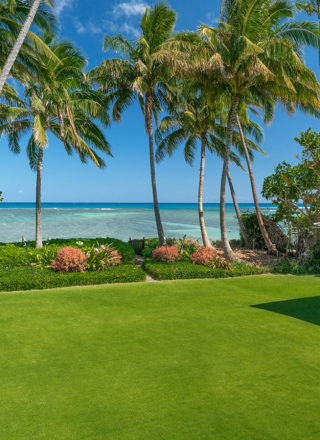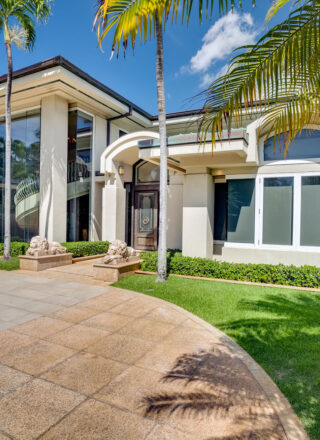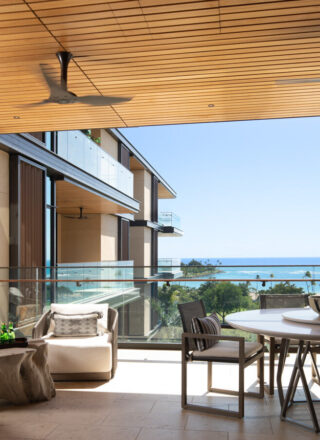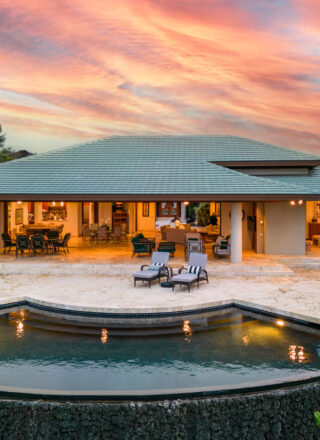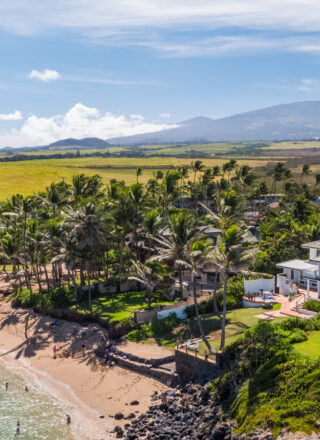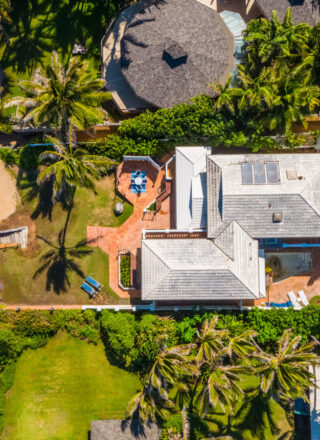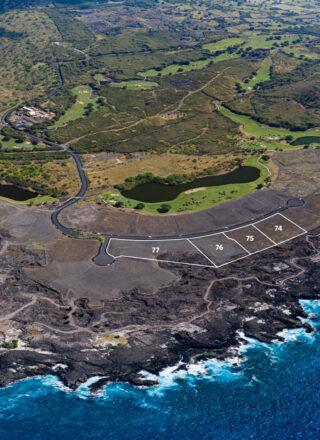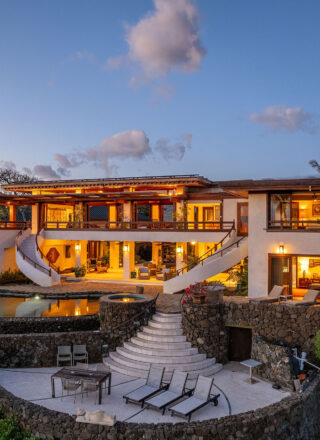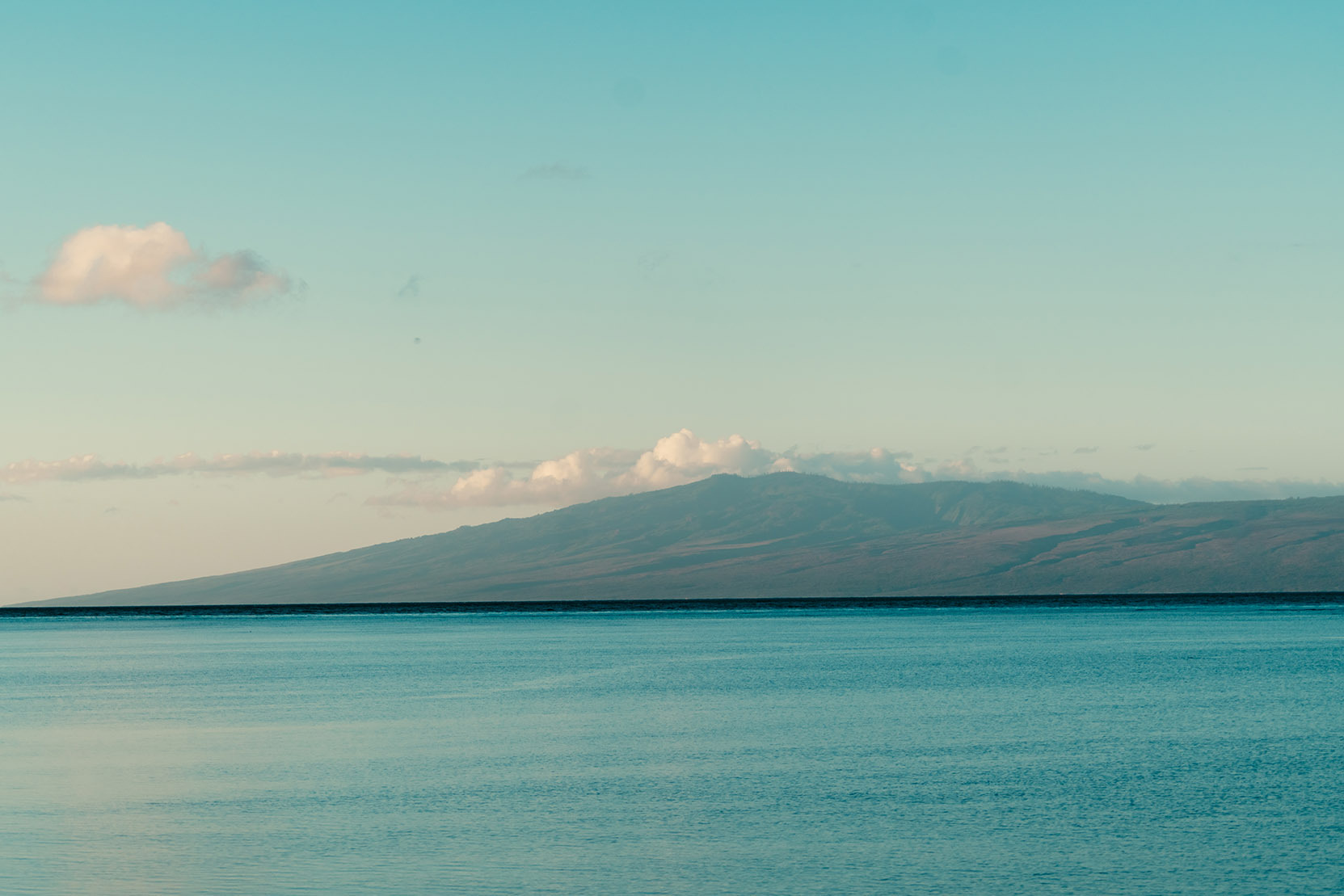Nov 2023
Market Insights for Q3 by Matt Beall
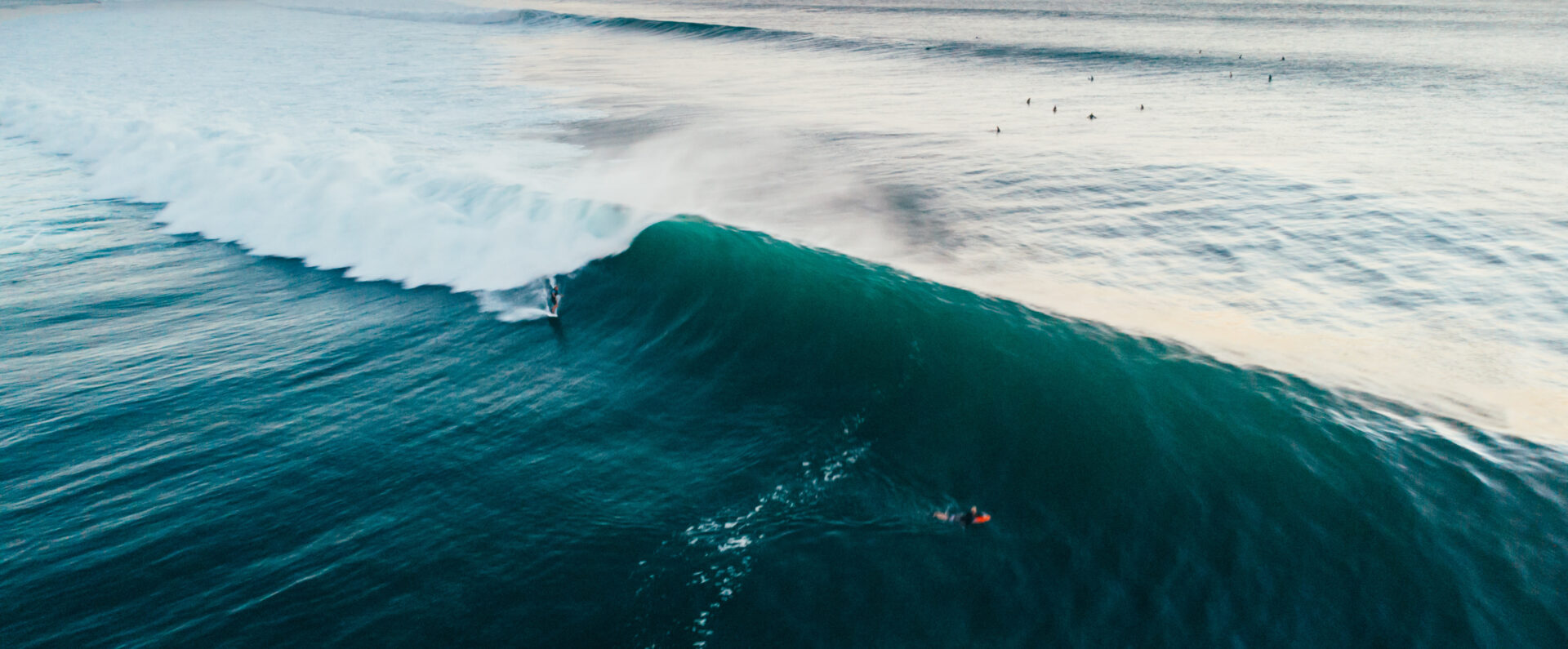
Sales and trends in Hawai‘i’s high-end real estate market
Matt Beall on market trends and the high-end's impact on community engagement.
In March of this year, I gave a keynote address at a conference in Portland, Oregon, hosted by a creative agency that serves real estate, proptech, and fintech companies. The focus of my talk was how real estate marketing, especially in social media, is far too often devoid of the social, cultural, economic, and political contexts in which we are immersed. I argued that the pursuit of “personal brands” actually does more harm than good, or at least harm that’s difficult to measure.
I’m having to take some of my own medicine now in the wake of such extraordinary disasters on Maui. Last year, in the summary of our 2022 Midyear Hawai‘i Luxury Market Report, I wrote: “One thing we can predict with near-pinpoint accuracy is that there will likely be another seemingly unpredictable event, whether worldwide or localized, which will radically impact the luxury real estate market and skew any sense of normality. It’s just a matter of when.” If only that prediction didn’t come true. It’s hard, if not perverse, to write about luxury real estate in the aftermath of the Maui fires, and the systemic flaws that set the stage for them. On one hand, it’s easy to muster nihilism and cynicism in the face of such unspeakable damage and loss. Who could possibly care about real estate at a time like this? On the other hand, this disaster makes everything, especially our loved ones and our homes, all the more precious, and our appreciation for them all the more urgent.
I can’t begin to express enough gratitude for those of you who’ve joined us in supporting Maui by contributing to the Hawai‘i Life Charitable Fund, a donor-advised fund of the Hawai‘i Community Foundation. The outpouring of support helped us quickly surpass our matching funds of $100,000—as of this writing, we’ve raised over $330,000 that will all be transferred to the Hawai‘i Community Foundation’s Maui Strong Fund. I have absolute trust in the organization’s ability to steward relief and recovery efforts on Maui, both in the near term and for the years to come. (We cover the efforts on Maui in more detail on page 80 of HL1 Magazine Issue 7.)
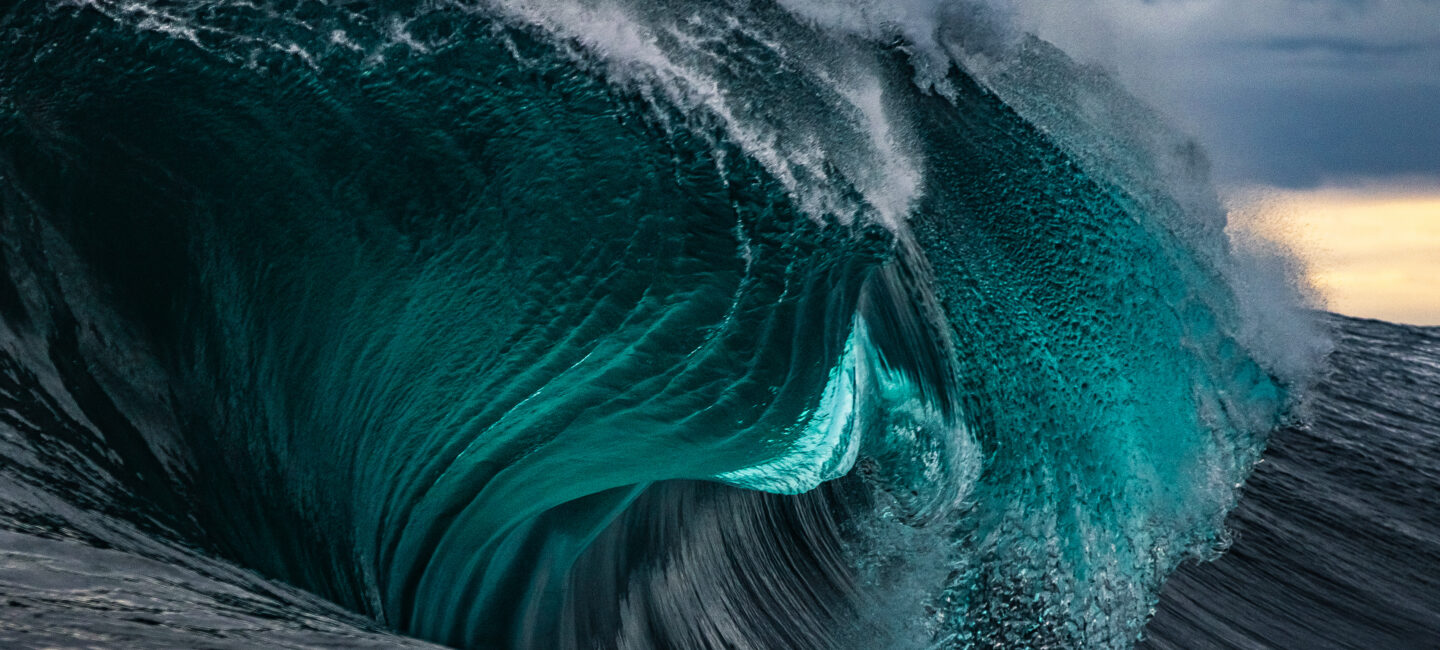
I Stock 1509513318
Ultra-high-net worth market entrants were more connected to the communities they invested in than their more transient, less wealthy counterparts
-
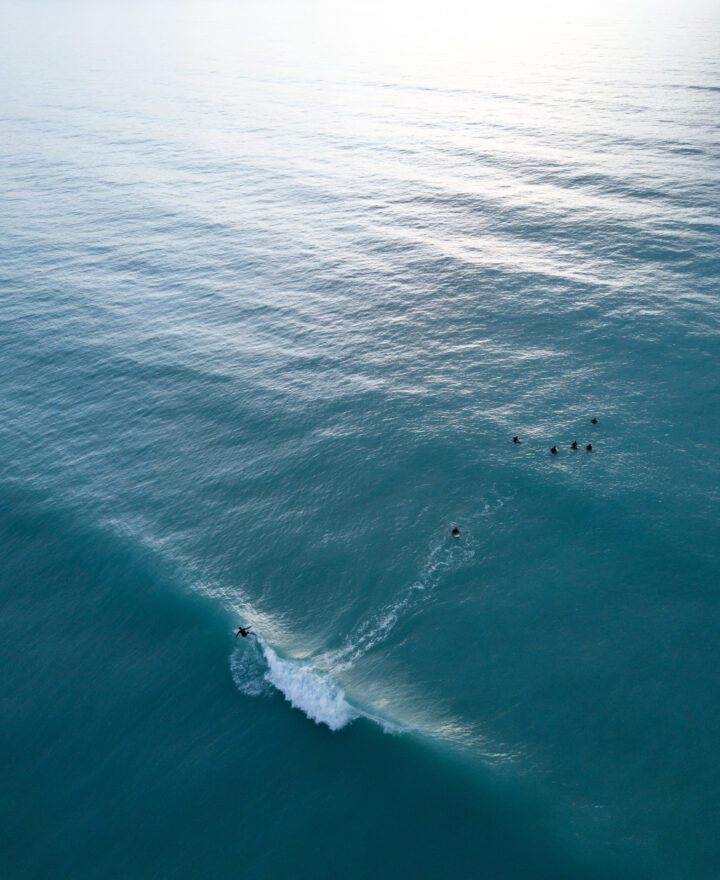
Good neighbors make good neighbors.
About 20 years ago, I was invited to sit in on a conversation with a large developer and other stakeholders around the possibility of creating a highly amenitized project for what would likely be high-net-worth owners. I was there in my capacity as the broker of what was then the top-selling brokerage on the island (prior to founding Hawai‘i Life). The conversation was facilitated by Group 70, an architectural and design firm based in Honolulu.
During the conversation, as they shared their thinking about the highest and best use for the project, they cited a comprehensive cross-longitudinal study on the demographics and psychographics of ultra-high-net worth buyers of Hawai‘i real estate. In short, the study supported the position that ultra-high-net worth market entrants were more connected to the communities they invested in than their more transient, less wealthy counterparts. They were more philanthropic, engaged, and ultimately contributed more to Hawai‘i’s local economy and communities than the more transient “rich but not wealthy” real estate buyer.
In my 25 years of practicing real estate in Hawai‘i, nothing has supported that thesis more for me than the years of the pandemic. I’ve written at length in previous editions of this magazine and in past market reports about the wave of buyers who came to Hawai‘i during the pandemic and put their children in local schools, met their new neighbors, and got involved in their communities. For the most part, these were not the “good fences make good neighbors” crowd—they’re more of the “good neighbors make good neighbors” mindset.
Granted, escapist fantasies abound in Hawai‘i, both in those who move here from afar and certainly in those who come for vacation. But there was something encouraging about the incredible market run that happened during the pandemic. In the parlance of psychological attachment theory, these new market entrants are less avoidant and more secure.
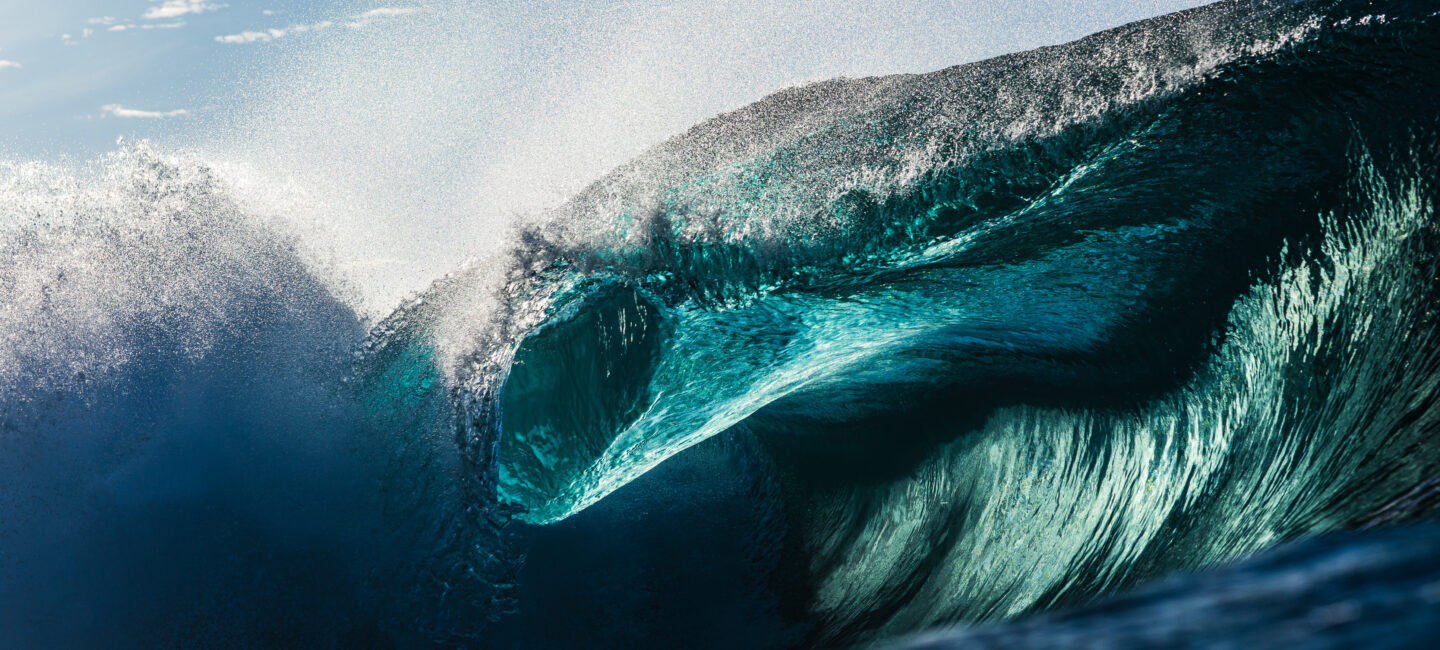
I Stock 1726868063
As we face the incredible tragedy of the fires on Maui, I’m reminded of this dynamic. Disasters bring an opportunity for social cohesion, for empathy and compassion. Of course, and especially in the early stages of recovery, there’s been no shortage of power struggles, rampant misinformation, and legitimate concerns for disenfranchisement. The conversation around who manages Maui’s recovery, and how, will play out for months and years to come, but it’s clear to me, however anecdotally, that Hawai‘i and Maui benefit from the engagement, appreciation, and support of a number of high-net-worth individuals.
Social media trolls and any number of frustrated people have taken shots at Jeff Bezos, Oprah Winfrey, and other high-net worth individuals who have donated to the cause, but their contribution to Maui’s recovery is both meaningful and well-documented.
Of course, there are innumerable systemic issues to address. There are those who will say that “Band-aid” philanthropy does little to impact the structural inequities in Hawai‘i. Indeed, it can be argued that many of Hawai‘i’s challenges have, in fact, been exacerbated by the romantic, escapist fantasies of outsiders, but in the face of such acute and dire need, Maui is benefitting from its wealthy stakeholders.
Many have come and gone, but instead of selling the property they purchased, buyers have elected to rent them out.
-
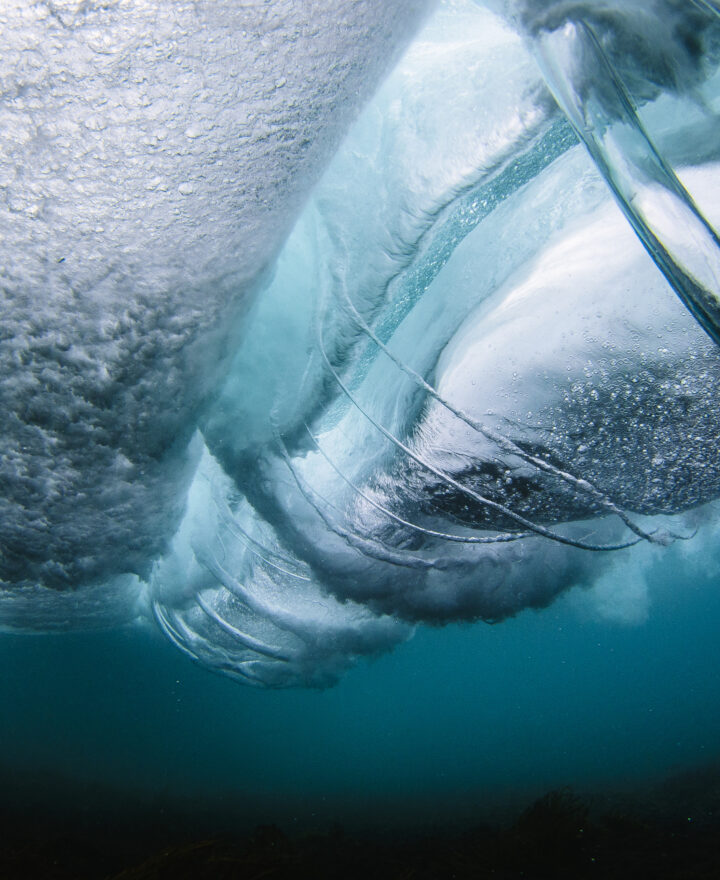
Hawai‘i isn't for everyone.
On the subject of last year’s predictions, I also forecasted that a significant number of people who purchased homes in Hawai‘i during the pandemic would elect to move back to the continent after the pandemic subsided and put the property they purchased back on the market. After all, Hawai‘i has an almost gravitational effect of either perpetually drawing people in or spinning them out.
That prediction turned out to be only half true. Many have come and gone, but instead of selling the property they purchased, buyers have elected to rent them out. We’ve seen a dramatic increase in the number of rental properties we manage. The decision to rent properties out, as opposed to selling them, seems influenced by a number of factors.
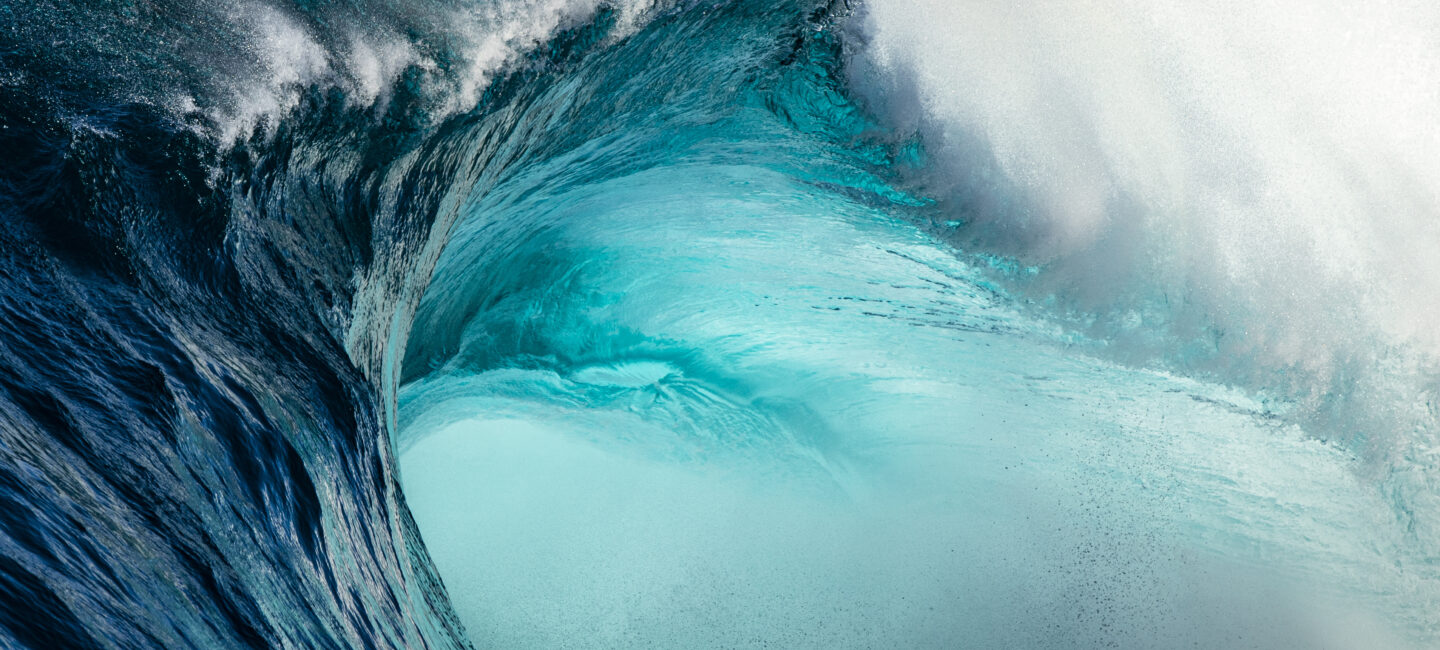
I Stock 1373241306
Price stability and appreciation may provide some comfort for those looking to hold their property long term. A significant amount of price appreciation occurred during the pandemic, especially considering already-existing inventory constraints. New home construction in Hawai‘i is extraordinarily difficult. Every county in Hawai‘i is experiencing unusually long permit delays. In addition, limits on land use, legislative and judicial hurdles, and affordable housing requirements all combine to radically impede the supply of new homes. These supply-side constraints lead to price appreciation of existing homes. As a result, a single-family home bought in 2000 is now valued nearly four times higher.
Mortgage interest rates have more than doubled since bottoming out during the pandemic. While the great majority of the homes purchased during the pandemic were all-cash transactions, the prospect of higher rates may still lead to a wait-and-see approach for those considering divesting, especially if the properties were classified as investment purchases, and where a sale would then lead to another purchase (by way of a 1031 exchange, for example). Replacement properties in exchanges have to be at equal or greater value, so it’s possible that a mortgage might play a role for the replacement property. At the time of writing, the current 30-year fixed mortgage rate is at 7.23 percent, higher than at any point in the last two decades.
Long-term rental rates in Hawai‘i are also at their highest point in history. Survey data from 2021 estimates the median monthly rent in Hawai‘i is the highest of any state in the nation. The impact of the pandemic on Hawai‘i’s rental market was even more pronounced than the real estate market, which broke every statistical record measurable.
Short-term rental rates and occupancy also spiked during the pandemic, and while both have subsided a bit as the rest of the world’s vacation destinations have reopened, the revenue for property owners from vacation rentals is still significantly higher than that of long-term rentals.
Our off-market listing inventory is larger than at any time in the company’s 15-year history
-
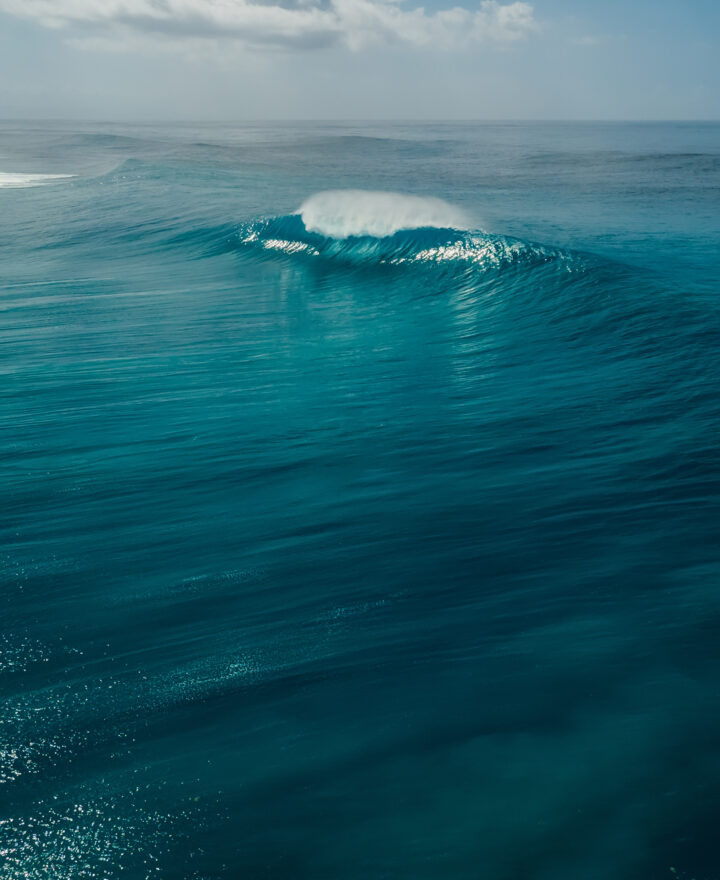
Not all listings are listed.
Even despite the lack of a more obvious shakeout, there are still new listings, but not all of them are, in fact, listed. An increasing number of our clients are electing to pursue private, or off-market, listing agreements. At present, our off-market listing inventory is larger than at any time in the company’s 15-year history, ranging in price from $2.5 million to as high as $120 million, across the island chain.
Private, off-market listings are just that—private. They are not in any multiple listing service. Marketing materials about the listings are not available publicly, and access is limited to the brokerage, agents, and clients of the firm (if not only a select few).
These are not “pocket listings” in the traditional, colloquial sense, in that we’re not referring to anecdotal knowledge that a particular property owner might sell for the right price. On the contrary, all of our listings—especially those that are private—are by way of exclusive contracts to sell the property.
The proliferation of off-market listings has been a source of extensive debate and scrutiny by the National Association of Realtors, industry watchdogs, and even the U.S. Department of Justice. Our steadfast belief is that our clients should have the right to choose whether or not their listing is public or private.
Sellers elect to take this route for a host of reasons.
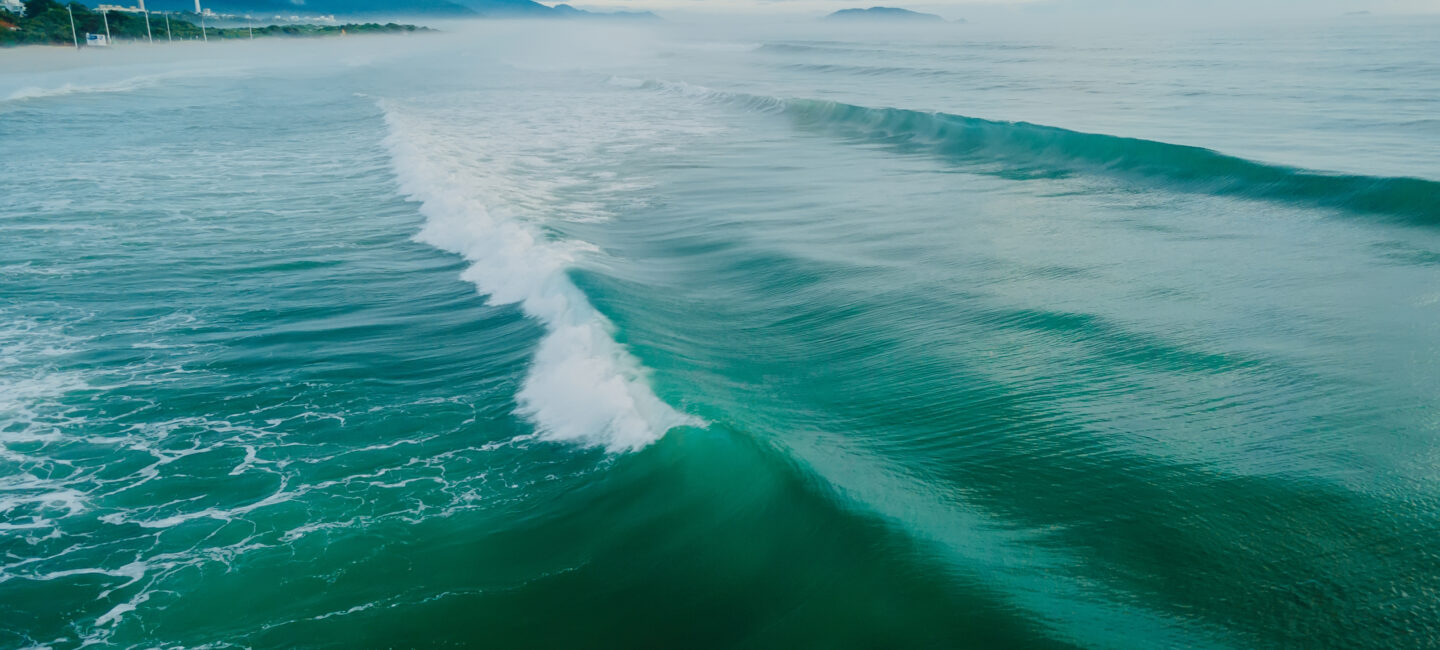
I Stock 1365615675
Privacy considerations are among the most common reasons. Some clients have relatively high public profiles. In the case of known celebrities, for example, they may prefer to avoid the inevitable press attention that would come with listing their home for sale. Hawai‘i is a small media market, so even more obscure celebrities will garner attention in the local news media when selling their homes. For others, just the thought of having broker tours walk through their home may feel like an overwhelming breach of personal privacy. There may be significant art or other valuables in the property, the existence of which the owners would prefer to keep out of the public domain. And some clients would simply prefer not to publicly announce their intent to sell, whether to their neighbors, colleagues, or sometimes even their own family members.
Discerning value can also be a challenge. Especially in the case of legacy properties, the offering may be so unique that there are no comparable or even relevant sales to reference for valuation purposes. The sellers may also realize (consciously or not) that the price they’re hoping to achieve is well beyond the market’s normal expectations. Listing the property publicly may then expose it to innumerable days on the market and a resulting perception of “staleness.”
Pride may play a role. The owners may also believe that choosing not to list the home publicly will make it seem more valuable if and when a prospective buyer discovers that it is indeed available for purchase. In fairness, some sellers are truly testing the market, with no other driving reason for the sale other than the property’s recent appreciation.
There are, of course, serious limitations to consider when electing to market a listing privately. Sourcing a buyer is certainly more difficult without the full court press of public marketing campaigns. As brokers, we’re relying solely on our existing relationships in the market and our respective referral sources around the world. While these may prove remarkably effective, it generally requires extended listing periods. We’ve often exceeded expectations (even our own) in this space, however. We were recently hired to market a prominent estate with a rich history and multiple homes with private amenities. Given the relatively small demographic of prospects, our expectation was that it may take as long as a year, especially if the property were only marketed privately.
As it turned out, after an initial round of private client introductions to the listing, we received multiple offers within 45 days, each from different active clients of our HL1 brokers. We sold the property very close to the list price shortly thereafter, without any public marketing. It currently holds the record for the highest sale on the island.
Statewide
Hawai‘i Life continues to be the leading residential real estate brokerage by sales volume, primarily due to our significant market share in high-end markets across the island chain. Since our inception in 2008, we’ve brokered more than 20,000 individual sales for a total of over $20 billion in volume. Even with all the market context and experience those transactions have brought, it’s safe to say that the volume of activity during the pandemic caught everyone by surprise, especially early on.
Statistically, the pandemic period from spring of 2020 to summer of 2022 represented the largest run on real estate in Hawai‘i’s history. As a result, by the end of the second quarter of 2022, the inventory of available properties for sale was at its lowest point in the history of the market. The overwhelming demand from the pandemic period consumed nearly every available listing in the market.
The inventory of properties for sale has been slowly increasing since summer of 2022, along with the shadow inventory of “off-market” listings. (In fact, in some neighbor island markets, our current inventory of off-market listings rivals our active publicly listed offerings.) While overall trading has also dramatically contracted across the state, it didn’t dip below the levels of the Great Recession in 2008 and 2009—largely because demand for Hawai‘i real estate has continued despite historically high interest rates and economic headwinds. Across the islands, the volume of sales dropped dramatically in the third and fourth quarters of last year, reaching what looks to have been a bottom in nearly every market in January 2023. Since then, market activity has been slowly increasing each month.
The constraints are predominantly on the supply side. The shortage of supply is likely to keep prices stable into the coming year. The number of new luxury homes being built is also expected to remain limited, as developers are reluctant to start new projects in a rising interest rate environment.
Bid-to-ask ratios have been widening, as buyers seem intent on attempting to take advantage of a slower market. But the actual margins of sold prices versus list prices haven’t budged much at all and are still above 96 percent in nearly every market in the state.
O‘ahu
As we forecasted in 2022, the most significant activity in O‘ahu’s luxury real estate market centered around new condominium developments. The inventory for high-quality residential homes was already strained even prior to the pandemic, and the great majority of what was available during the pandemic was absorbed by the outsized demand. Buyers have turned their focus back toward the new condominium developments largely due to new construction, high-quality amenities, ample outdoor spaces, and relatively low-maintenance living.
As with the neighbor islands, there is a slow but steady increase in the inventory of homes for sale on O‘ahu, and an increasing number of legacy property offerings that are not listed publicly.
Perhaps unsurprisingly, the number of real estate licensees on O‘ahu has reached a record high. Subscribers to O‘ahu’s multiple listing service alone reached a staggering 7,026 members as of June, which is more than three times the number of active residential listings on the island and more than the aggregate number of total sales year-to-date. The growth in agent count, and their corresponding lack of experience and/or market history, may be a contributing factor to the trend toward off-market listings, especially in a market where the sellers are more likely to live in or near the home they’re looking to sell.
Sales to foreign buyers are still lagging far behind pre-pandemic levels. Year-to-date sales to foreign buyers were less than half their 2019 level. The Japanese exchange rate has remained historically low, which has prolonged their return to the market. So far in 2023, sales to foreign buyers represent only 3 percent of the sales volume across the state.
In March of this year, we represented both the buyer and seller of Dillingham Ranch, a 2,700-acre ranch in the Mokule‘ia district on O‘ahu’s north shore. It was listed for sale at $40 million and closed at $36.5 million, representing the highest-priced sale on O‘ahu year-to-date.
At the time of writing, we’re representing buyers in a significant off-market transaction which, if/when it closes, will set another record for values on O‘ahu.
Maui
Following the destructive fires on Maui, we are focused on community relief efforts and welcoming visitors to other parts of the island. We’re grateful to those who are supporting the island both locally and from afar.
It’s nearly impossible to conjure words to describe the impact of such a devastating disaster. Suffice it to say, the incredible loss of life and of an entire town has brought unfathomable grief and newfound attention to systemic failures that predated the fires, if not caused them.
While relief efforts are well underway, recovery and rebuilding will take years. An estimated 2,200 homes were lost in the Lahaina and Kula fires. That’s more than the aggregate number of new homes permitted for construction over the past five years on Maui.
Indeed, even prior to the fires, Maui County reported a small net housing loss over the past five years, according to the U.S. Census Bureau. New home construction on Maui has been extremely limited, and the damage from the fires resulted in a reduction of approximately 17 percent of West Maui’s total housing stock.
While the future remains somewhat pixelated, especially so soon after the fires, we do have some anecdotal experience from previous disasters on other islands, especially the flooding on Kaua‘i in 2018 and the volcanic eruption on Hawai‘i Island that same year. Perhaps counter-intuitively, the net result of having Maui covered in the global news cycles for extended periods of time is likely to increase the already outsized demand for real estate on the island. This is not “disaster capitalism” per se, but rather the byproduct of extraordinary and sustained media exposure coupled with an already constrained market.
In the near term, the economy on Maui is suffering both from losses from the fires along with the sudden drop in visitor arrivals to the island.
Prior to the fires, Maui’s ultra-luxury real estate market activity was waning in velocity, but similar to the neighbor island of Kaua‘i, prices remained at pandemic levels while trading and inventory decreased. Consistent with our forecast last year, we’ve brokered a few record-breaking sales in Maui’s ultra-luxury market.
Hawai‘i Island
In contrast to the rest of the state, Hawai‘i Island’s newer housing stock, particularly in its resort markets, has led to a slightly more resilient market for luxury homes. The private club communities along the Kohala Coast and in Kailua-Kona were in high demand throughout the pandemic, along with the surrounding resort communities. The availability of more recently built homes in master-planned communities has remained attractive to buyers planning for retirement and those looking for ideal second-home locations.
Inventory in the ultra-luxury market has declined dramatically, albeit slightly less so than the other islands. The proliferation of “off-market” listings is significant on the Big Island. We’re currently representing estates which are arguably the most well-designed and well-positioned real estate offerings anywhere in the island chain.
There are also a few large contiguous land offerings on Hawai‘i Island (both on and off market), each of which are relatively incomparable to land elsewhere in the state. For conservation-minded buyers, or those interested in agriculture and/or in securing a legacy land holding for a family compound, these would make ideal considerations.
Kaua‘i
As documented in our more comprehensive market reports, the island of Kaua‘i arguably experienced the most dramatic impact in terms of market activity during the pandemic. The volume of sales and their respective price points exceeded the other islands when considering the island’s market size. Correspondingly, the market ground to a halt last summer. There was quite literally nothing left to transact.
Recently, activity is rebounding slowly as more inventory comes online. Consistent with the rest of Hawai‘i, prices have not adjusted downward as much as some buyers may have anticipated, and sellers have been reluctant to enter the market in what is perceived as a relatively sluggish environment.
We currently have an outsized inventory of off-market listings on Kaua‘i, nearly rivaling the size of our publicly available inventory.
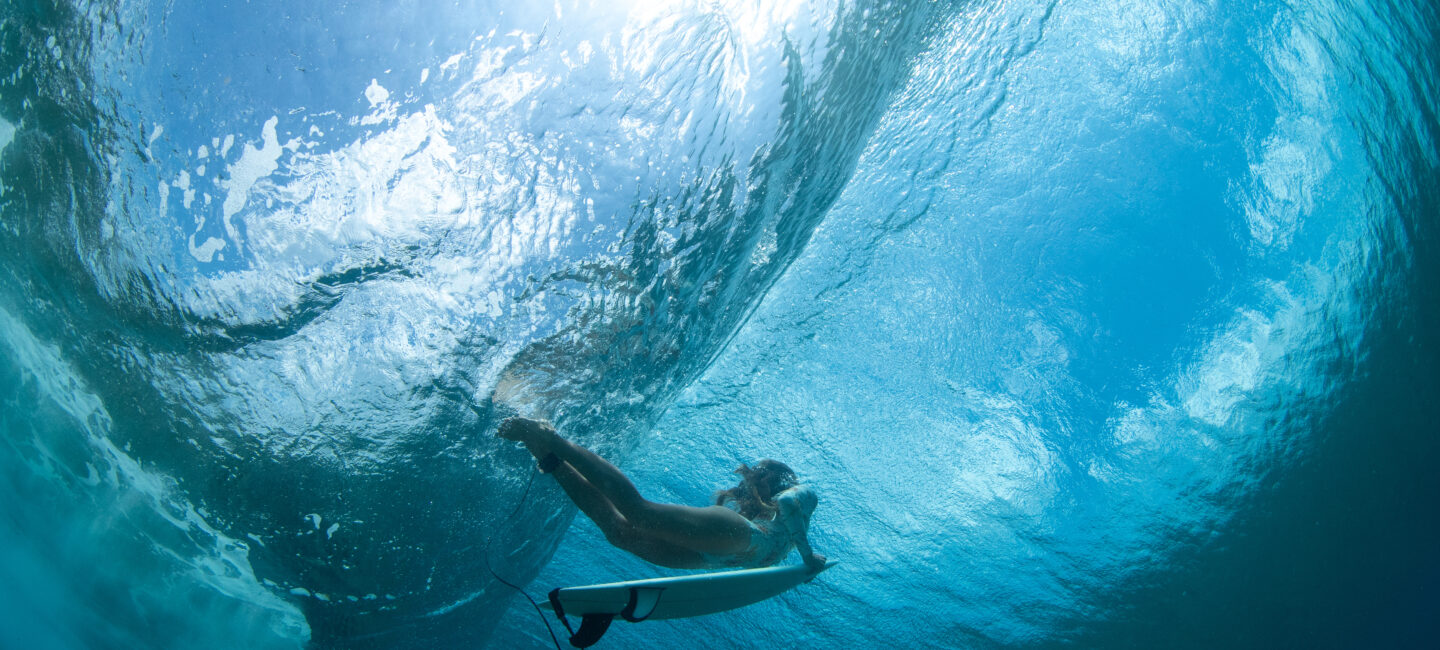
I Stock 1222201919
Vacation Rental Market
The top of Hawai‘i’s vacation rental market has slowed somewhat, corresponding with the rest of the world’s premier locations reopening after the pandemic. Nightly rental rates, along with those of Hawai‘i’s resort hotels, have contracted as much as 25 percent from their peak highs during the “revenge travel” of the pandemic.
Interestingly, the owner-occupancy of the homes we manage as vacation rentals remained at record levels after the pandemic. Homeowners of the most sought-after rentals, those that command nightly rents of $2,000 or more per night, are spending an average of 46 nights a year in their properties, down only slightly from an average of 54 nights of personal use during the pandemic. (It’s good to see our clients emphasize their personal use of their vacation homes, and it’s clearly contagious.)
We’re increasing both our service offerings as well as our inventory in the vacation rental space. A full third of our bookings are direct from our client base, as opposed to syndication channels such as Airbnb or Vrbo.

I Stock 512984240
Forecast
For the most part, the top tiers of Hawai‘i’s real estate market have performed in line with our expectations from the previous year: fewer trades, moderate price decreases (if any), and a few record-breaking transactions across the state.
We expected the return of the foreign market to be more robust by now, which clearly hasn’t happened. Given the sustained weakness of the Japanese yen, it may take longer still. Canadian visitors have returned, but not to their pre-pandemic levels.
Last year, the majority of economists forecasted that the U.S. would be in a recession by mid-2023, which also has not happened. Our forecast was influenced by those assumptions, especially in that recessions often shake out more inventory and bring opportunistic buyers with dry powder in the market. The opportunistic buyers are here, but the inventory is not.
There is inventory, however, in the “off-market” segment of the market. These properties typically take longer to trade, but we’ve conducted enough of these transactions recently to be convinced that the future will likely hold more private listings and sales. Coming into the fall and winter, as the U.S. presidential election dominates the news cycles and pundits on both sides hyperbolize about the state of the economy, we might see an uptick in inventory, especially if economic concerns lead more people to divest of their assets.
We continue to hold Maui in our hearts and are so grateful for the generous and supportive response from Hawai‘i’s people and those around the world who’ve contributed their time, talent, and treasure toward relief efforts and ongoing recovery efforts.
Want to learn more about Q3? Click here for an even deeper dive into the data in the Q3 Quartly Market Report
— More Articles
-
HL1 Magazine Issue No 7 Release

Dive into highlights of the latest release of HL1 Magazine. Lucky No 7.
-
Luxury Market Report, Q3 2023: Statewide

Read this data-rich statewide overview of the luxury market for Q3 2023.
-
Luxury Market Report, Q2 2023: Statewide

This is a statewide overview of the luxury market for Q2 2023.


